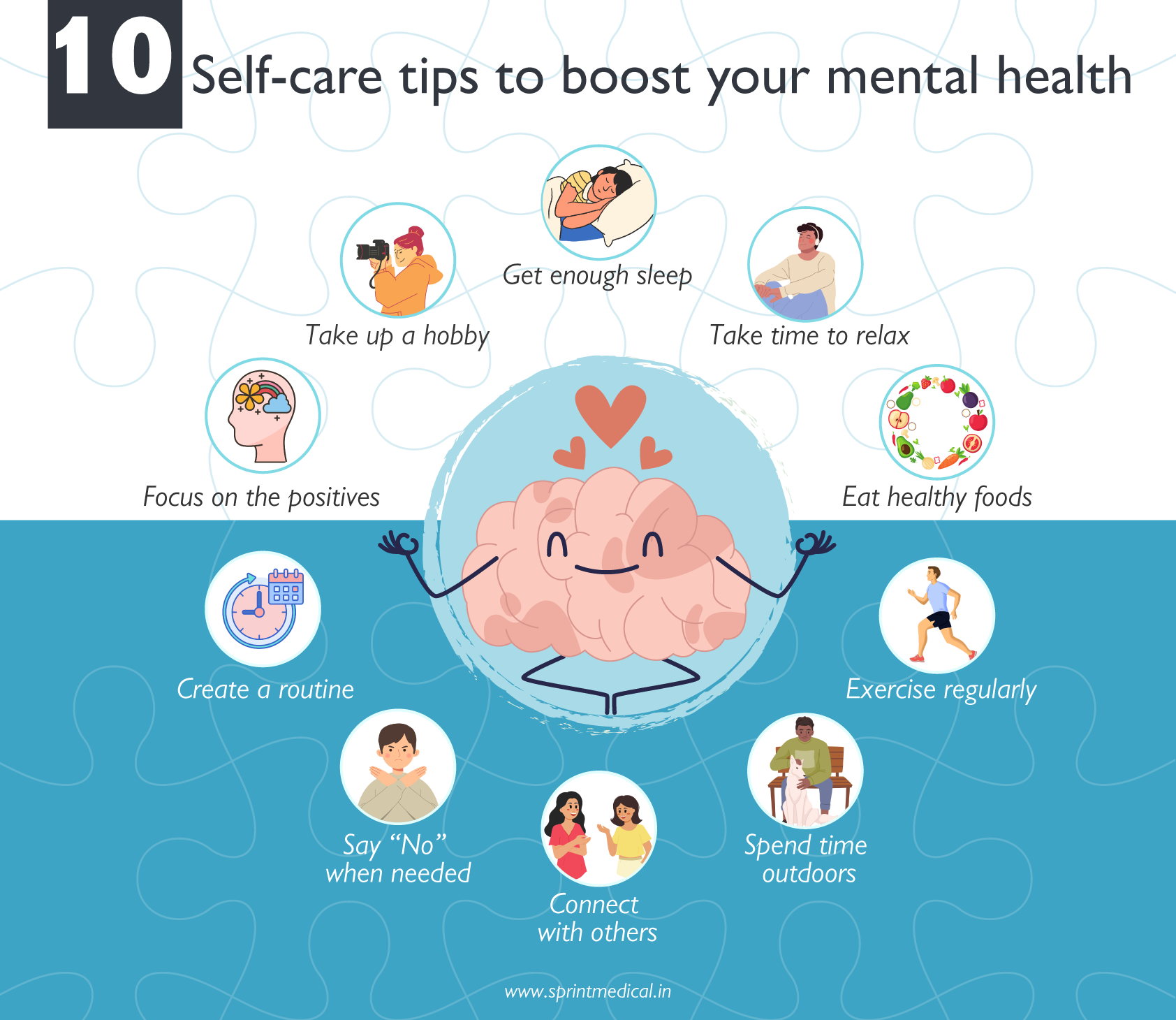How mental health can be improved
Date: Mon Mar 11, 2024 03:50PM
© Saurabh Solanki

Improving mental health involves a multifaceted approach that addresses various aspects of well-being. Here are some strategies to promote mental health and well-being:
- Seek Professional Help: If you're struggling with mental health issues, don't hesitate to seek support from a mental health professional, such as a therapist, counselor, or psychiatrist. They can provide personalized treatment and support tailored to your needs.
- Stay Active: Regular physical activity has been shown to improve mood, reduce stress, and boost overall mental well-being. Find activities you enjoy, whether it's walking, jogging, yoga, or dancing, and incorporate them into your routine.
- Practice Mindfulness and Relaxation Techniques: Mindfulness meditation, deep breathing exercises, and progressive muscle relaxation can help reduce stress, anxiety, and promote relaxation. Incorporate these techniques into your daily routine to improve mental clarity and emotional resilience.
- Maintain Social Connections: Social support is crucial for mental health. Stay connected with friends, family, and loved ones through regular communication, social activities, and spending quality time together. Joining clubs, groups, or support networks can also provide a sense of belonging and connection.
- Eat a Balanced Diet: A healthy diet rich in fruits, vegetables, whole grains, lean proteins, and omega-3 fatty acids can support overall well-being and improve mood. Limiting processed foods, sugary snacks, and caffeine can help stabilize mood and energy levels.
- Get Adequate Sleep: Quality sleep is essential for mental health and cognitive function. Aim for 7-9 hours of uninterrupted sleep per night and establish a regular sleep schedule. Create a relaxing bedtime routine and optimize your sleep environment for restful sleep.
- Set Realistic Goals: Set achievable goals and break them down into manageable steps. Celebrate your accomplishments, no matter how small, and practice self-compassion when facing setbacks or challenges.
- Limit Screen Time: Excessive screen time, especially on social media, can contribute to stress, anxiety, and negative self-comparison. Set boundaries around screen use, take regular breaks, and prioritize offline activities that promote relaxation and connection.
- Engage in Hobbies and Activities: Pursue hobbies and activities that bring you joy and fulfillment, whether it's art, music, gardening, or sports. Engaging in meaningful activities can boost mood, enhance creativity, and provide a sense of purpose.
- Practice Gratitude: Cultivate an attitude of gratitude by regularly reflecting on the things you're thankful for. Keeping a gratitude journal, expressing appreciation to others, and focusing on the positive aspects of life can foster resilience and improve overall well-being.
Remember that mental health is a journey, and it's okay to seek support and take small steps toward improvement. Prioritize self-care, seek help when needed, and surround yourself with supportive relationships to nurture your mental health and well-being.
Views (2)Like (0)Dislike (0)Comments (0)
No comments added







